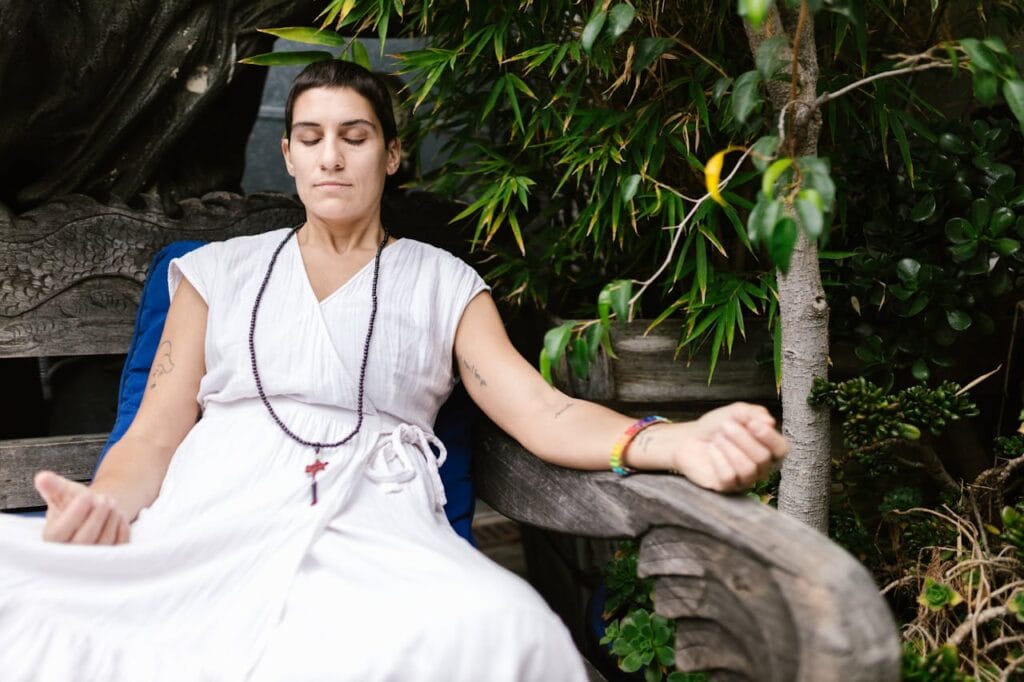Discover the significance of ceremonial practices in various cultures. From spiritual rituals to ceremonial practices, learn how these traditions shape beliefs and foster connection.
Introduction to Ritualistic Practices
Ritualistic practices have been a part of human culture for millennia, ingrained in traditions and spiritual beliefs worldwide. These practices are central to religious ceremonies and significant in personal development, healing, and community bonding. Whether in meditation, prayer, or symbolic actions, ritualistic practices are a powerful way to connect with the divine, the community, and oneself.
This blog post will explore the nature of ceremonial practices, their cultural importance, and how they influence individuals and communities. Let’s dive into the world of rituals and discover their profound effects. Learn more.
The Importance of Ritualistic Practices in Cultures
Ritualistic practices are deeply embedded in various cultures. From ancient civilizations to modern-day traditions, rituals are essential in shaping societal norms, spiritual beliefs, and individual behavior. In many cultures, these rituals symbolize the passage of time, mark life’s milestones, and provide a framework for understanding the mysteries of existence.
For example, in Hinduism, daily rituals are performed to honor deities and seek spiritual guidance. In Christianity, communion and baptism symbolize spiritual rebirth and purification. Similarly, in African traditions, ceremonial practices are used to connect with ancestors and maintain harmony between the physical and spiritual worlds.
These rituals often carry symbolic meanings, reflecting the communities’ values, beliefs, and histories. Rituals’ power lies in their ability to provide structure, bring about transformation, and offer a sense of belonging and continuity. Learn more.
Types of Ritualistic Practices
Ritualistic practices can vary greatly, but they share a common theme of structured, intentional actions. These practices can be broadly categorized into several types:
Religious Rituals
Religious rituals are the most widely known forms of ritualistic practices. These are conducted to honor gods, celebrate holy days, or mark important life events. For example, baptism, communion, and prayer are central to religious observance in Christianity. Daily prayers (Salat) and fasting during Ramadan are key rituals that shape spiritual practice in Islam.
Healing Rituals
Many cultures incorporate rituals to promote healing and well-being, both physically and emotionally. Indigenous tribes often use ritualistic practices to heal from illnesses or spiritual imbalances. These rituals may involve plant medicines, drumming, chanting, or the guidance of a shaman or spiritual healer. In modern times, practices like yoga and meditation are also viewed as ritualistic tools for mental and physical healing.
Life Transition Rituals
Rituals surrounding significant life events, such as birth, marriage, and death, occur daily in cultures worldwide. These rituals provide a sense of closure, transformation, and spiritual connection. For instance, in Jewish tradition, a Bar or Bat Mitzvah marks a child’s coming-of-age. At the same time, in many African cultures, rites of passage such as circumcision or the initiation of young adults symbolize their entry into adulthood.
Seasonal and Agricultural Rituals
Agricultural rituals, such as planting and harvest times, are based on the earth’s natural cycles. In many agricultural societies, these rituals ensure a good harvest, connect with the land, and honor natural forces. Harvest festivals in various cultures, such as Thanksgiving in the U.S. or the Chinese Mid-Autumn Festival, are examples of seasonal rituals that celebrate abundance and community.

The Spiritual Significance of Ritualistic Practices
At the heart of many ritualistic practices lies a deep spiritual purpose. Rituals often serve as a conduit for individuals to connect with something greater than themselves—whether it be a higher power, the natural world, or their inner consciousness. Performing a ritual is seen as a way to transcend the mundane and enter a sacred space where healing, clarity, and transformation can occur.
For example, meditation and prayer are considered rituals that allow individuals to center themselves and access more profound levels of awareness. In many spiritual traditions, rituals are believed to link the earthly realm and the divine, fostering a sense of interconnectedness with all living things.
Additionally, the repetitive nature of ritualistic practices can have therapeutic effects. The rhythm of chanting, dancing, or meditating calms the mind and body, helping to reduce stress and anxiety. These practices often facilitate spiritual growth and deepen one’s connection with the universe. Learn more.
The Role of Ritualistic Practices in Modern Life
While ritualistic practices are often associated with ancient traditions and religious beliefs, they remain relevant today. Many people in the modern world are rediscovering the power of rituals for personal and spiritual growth. Practices like yoga, mindfulness, and even simple daily routines can be ritualistic when performed with intention and awareness.
Rituals provide a sense of grounding and purpose in a fast-paced and disconnected society. They offer moments of stillness, reflection, and connection in an otherwise chaotic world. For instance, many people find solace in the ritual of a morning meditation or evening gratitude practice. These small acts can bring peace and mindfulness into daily life.
Rituals are also essential in personal development and healing. For example, people struggling with emotional trauma or mental health challenges may use rituals such as journaling, affirmations, or breathing exercises to process their emotions and foster healing. By engaging in these practices regularly, individuals can build resilience and create a sense of control over their lives.
How to Incorporate Ritualistic Practices into Your Life
Incorporating ritualistic practices into daily life can be simple. Even small, intentional actions can carry significant meaning. Here are a few simple ways to begin integrating rituals into your life:
Create a Morning Ritual
Start your day with mindfulness, gratitude, or a simple affirmation. This can help set a positive tone for the rest of your day.
Practice Meditation
Meditation is a powerful ritual that enhances mental clarity, reduces stress, and promotes overall well-being. Take a few moments each day to sit quietly and focus on your breath.
Engage in Nature Rituals
Spend time in nature, grounding yourself by walking barefoot or performing a simple act of gratitude for the earth. This can be a transformative ritual for reconnection.
Establish Family Rituals
Create bonding rituals with family, such as sharing a meal, storytelling, or lighting a candle for a moment of peace. These rituals can strengthen relationships and foster a sense of unity.
Develop Healing Rituals
Try rituals like journaling, visualization, or prayer if you’re seeking healing. These practices can support your emotional and spiritual well-being. Learn more.

Determination
Ritualistic practices have been part of human culture for centuries, offering structure, spiritual connection, and personal transformation. From ancient ceremonies to modern-day practices, rituals are vital for healing, growth, and community bonding. By understanding their significance and incorporating rituals into your life, you can tap into their powerful potential for creating a sense of peace, purpose, and interconnectedness. Embrace the transformative power of ritualistic practices and watch them profoundly enrich your life.
Top Blogs
- Sacred Healing history
- Sacred Healing preparation
- Sacred Healing experiences
- Challenges during Sacred Healing ceremonies
- Healing Anxiety and Depression with Sacred Healing
- How to Release Trauma Through Healing
- Is Sacred Healing Good for Anxiety? Exploring the Potential Benefits
- Legal status of Sacred Healing
- Unveiling the Mysteries: What Are the Elements of Sacred Healing?
- Sacred Healing and Personal Growth
- Sacred Healing journey stories
- My first Sacred Healing experience
- Mental health and Sacred Healing
- Sacred Healing safety
- Sacred Healing therapy
- Psychological effects of Sacred Healing
- Sacred Healing addiction recovery


